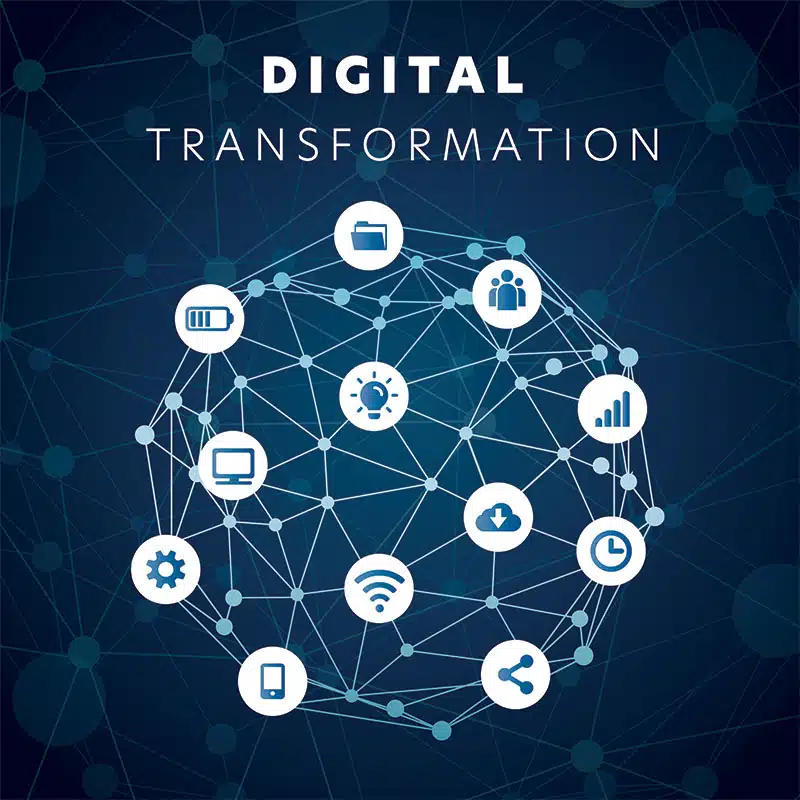Unveiling Digital Transformation Benefits in eLearning

Introduction
Digital transformation has become a crucial aspect of elearning development, revolutionising the way organisations approach training and education. In this blog post, we will explore the benefits that digital transformation brings to the elearning landscape. From enhancing learner engagement to personalising learning experiences, digital transformation empowers organisations to adapt to changing market dynamics and drive meaningful outcomes.
The Benefits of Digital Transformation in eLearning
Digital transformation offers numerous advantages for elearning development. By leveraging technology-driven strategies, organisations can enhance learner engagement, providing interactive and immersive learning experiences. Personalisation becomes key as digital transformation allows for tailored learning journeys based on individual needs and preferences. Additionally, digital transformation enables flexible access to training, breaking the barriers of time and location.
Enhancing Learner Engagement
Digital transformation in elearning brings a wealth of interactive and immersive learning experiences. Incorporating multimedia elements, such as videos, animations, and gamification, captivates learners’ attention and enhances their engagement. By making learning more enjoyable and interactive, digital transformation fosters a positive learning environment that promotes knowledge retention and application.
Personalisation and Adaptive Learning
One of the key advantages of digital transformation in elearning is the ability to deliver personalised and adaptive learning experiences. Through advanced analytics and AI-based algorithms, digital platforms can track learners’ progress, identify their strengths and weaknesses, and tailor the content accordingly. Adaptive learning ensures that learners receive the right content, at the right time, and in the right format, maximizing their learning outcomes.
Accessible and Flexible Learning
Digital transformation enables elearning to break the barriers of time and location. Learners can access training materials anytime, anywhere, and on any device. This accessibility and flexibility empower learners to take control of their learning journey, allowing them to learn at their own pace and convenience. Whether it’s through mobile apps, online platforms, or virtual classrooms, digital transformation makes learning more accessible and inclusive.
Making Data-Driven Decisions and Fostering Continuous Learning
One of the key aspects of digital transformation in elearning is the ability to make data-driven decisions. Through advanced analytics and tracking tools, organisations can gather insights on learner progress, identifying areas of improvement and optimising the learning experience. This data-driven approach empowers organisations to continuously enhance their elearning programs, adapting to the evolving needs of learners and the market.
Empowering Continuous Learning
In a rapidly evolving business landscape, continuous learning is essential for the success of organisations and individuals. Digital transformation facilitates continuous learning by enabling seamless updates and knowledge sharing. With digital platforms, training materials can be easily updated, ensuring that learners always have access to the latest information and industry trends. This empowers organisations to stay agile and adapt to changing market dynamics.
Unlocking the Full Potential of eLearning with Digital Transformation
One of the key aspects of digital transformation in elearning is the ability to make data-driven decisions. Through advanced analytics and tracking tools, organisations can gather insights on learner progress, identifying areas of improvement and optimising the learning experience. This data-driven approach empowers organisations to continuously enhance their elearning programs, adapting to the evolving needs of learners and the market.
Conclusion
Digital transformation is a game-changer for elearning development. By harnessing the power of technology and embracing digital transformation, organisations can unlock a world of possibilities. From enhancing learner engagement and personalising experiences to making data-driven decisions and fostering a culture of continuous learning, digital transformation empowers organisations to adapt and thrive in the ever-changing elearning landscape.
Stay Ahead with Digital Transformation in eLearning
Unlock the power of digital transformation in elearning. Discover how elearning solutions can revolutionise your business training, explore the benefits of elearning authoring services, and build an engaging elearning webpage. Visit the elearning space blog to stay updated with the latest industry trends and insight.
For more information on digital transformation benefits in eLearning and to stay updated on industry trends, you can visit the following external websites:
eLearning Industry: This website offers a comprehensive collection of elearning articles, concepts, software, and resources. It covers a wide range of topics related to eLearning, including digital transformation and industry trends.
Training Industry: Training Industry provides insights, news, and resources for professionals in the training and eLearning industry. It covers topics like digital transformation, learning technologies, and best practices for elearning development.
Learning Solutions Magazine: Learning Solutions Magazine is an online publication that offers articles, case studies, and insights on eLearning, instructional design, and technology in education. It covers topics related to digital transformation and the latest trends in eLearning.
Related elearning experiences: Scenario Learning, Virtual Onboarding, Engaging Digital Natives
